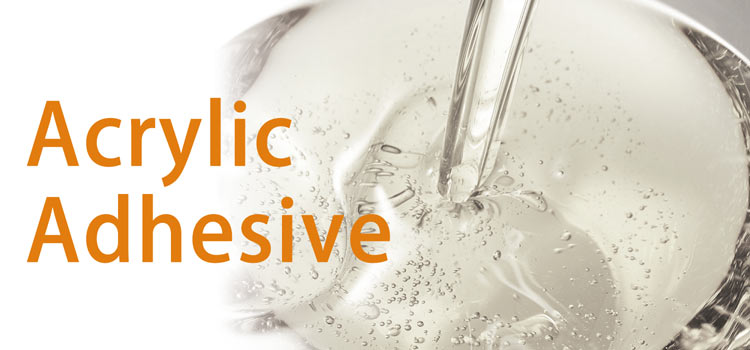Acrylic pressure sensitive adhesive has excellent pressure sensitive bonding properties
The acrylic pressure-sensitive adhesive has excellent pressure-sensitive bonding properties, such as adhesion, cohesion and weather resistance, and oil resistance. Therefore, this adhesive is widely used as a pressure-sensitive adhesive (adhesive) in pressure-sensitive adhesive layers that form pressure-sensitive adhesive tapes, labels, or sheets.

The previously used acrylic pressure-sensitive adhesive is a copolymer that uses one or more alkyl (methyl) acrylates as its main component to form a viscous polymer with a lower glass transition point, such as n-butyl acrylate or 2-ethyl hexyl acrylate, with a monomer having a functional group, For example, acrylic acid, 2-light ethyl (methyl) acrylate or acrylamide, as a crosslinking point in the viscous polymer, or improve the intermolecular force, improve the cohesion of the ingredients; And a copolymer formed by copolymerization with monomers such as styrene, vinyl ester as a monomer component of a hard monomer that can form a hard polymer with a higher glass transition point. This type of polymer used as a pressure-sensitive adhesive of acrylic acid is generally manufactured by solution polymerization, suspension polymerization, or emulsion polymerization.
Solution polymerization, however, not only needs to overcome environmental health concerns due to the large number of organic solvents used but also requires energy to separate the polymer and the steps required to distill the organic solvent: resulting in increased costs. The disadvantage of suspension polymerization and emulsion polymerization is that the emulsifier or dispersant used in polymerization enters the polymer, so it is difficult to obtain a pure polymer. In addition, the cost of suspension polymerization and emulsion polymerization is similar to solution polymerization because water is evaporated to separate the polymer.
In addition, because the above method of polymerization to prepare acrylic acid pressure-sensitive adhesive is generally used in batches, under polymerization conditions such as temperature and monomer concentration so the uniformity of the polymerization system is poor. Thus, the increased conversion to polymer leads to a widening of the molecular weight distribution and a decrease in monomer concentration in the final stage of the reaction, resulting in the formation of a large number of low molecular weight products. As a result, the resulting polymer has weakened pressure-sensitive adhesive properties. When such polymers are used as pressure-sensitive adhesives, there is a problem with increasing the component of the group converted to the adhesive.
About Changsheng pressure-sensitive adhesive supplier
As a professional acrylic pressure-sensitive adhesive supplier, Changsheng is committed to solving the problems encountered by customers in the use of glue due to different production equipment and processes.
Compared with traditional solvent-based pressure-sensitive adhesive, our emulsion pressure-sensitive adhesive has the advantages of environmental protection, safety, and easy operation. Using deionized water instead of traditional solvent reduces pollution to the environment and is an ideal environmental protection product.
By adjusting the proportion of the curing agents, pressure-sensitive adhesives with different adhesive forces can be obtained to meet the needs of different applications. Suitable for a variety of materials, transparent after drying.

Leave a Reply
Want to join the discussion?Feel free to contribute!